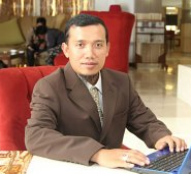Navigating Family Responsibilities: A Maqāṣid Sharia Framework for the Sandwich Generation
DOI:
https://doi.org/10.22515/jurnalalhakim.v7i1.11271Keywords:
Sandwich Generation, Maqāṣid Sharia, Islamic LawAbstract
The sandwich generation phenomenon is a global issue, with society acknowledging the financial and emotional challenges these people encounter. In the history of European evolution emerged influences that focus on individual rights can sometimes overshadow collective welfare and social justice, resulting in persistent disparities in wealth, access to healthcare, and educational opportunities. Consequently, the liberal perspective, which primarily examines economic factors, advocates for social benefits and counselling support to prevent members of this generation from succumbing to despair. The Islamic concept of maqāṣid sharia offers a holistic approach to tackle these challenges by striving for equilibrium in religious, spiritual, intellectual, genealogical, and material domains. This study utilises library research method employing maqāṣid sharia as an analytical framework to explore the application of its five core principles in addressing the pressures encountered by the sandwich generation. The findings reveal that enhancing spiritual values (hifẓ ad-dīn), preserving mental and physical well-being through work-life balance (hifẓ an-nafs), fostering intellectual growth and resilience (hifẓ al-aql), cultivating an Islamic parenting approach rooted in communal support (hifẓ an-nasl), and promoting social responsibility to bolster familial welfare (hifẓ al-māl) can effectively mitigate the dual burden faced by this generation. These strategies aim to achieve overall well-being whilst safeguarding spiritual, psychological, and social aspects of life.
Downloads
References
Abdussalaam, Izzuddin Bin. Qawaaid Ash-Shugraa. Beirut: Beirut: Daar al-Fikr al-Muaashirah, 1996.
Al Quran, Kementerian Agama.
Amalianita, Berru, and Eka Yola Putri. “Permasalahan Psikologis Pada Sandwich Generation Serta Implikasi Dalam Layanan Bimbingan Dan Konseling.” JPGI (Jurnal Penelitian Guru Indonesia) 8, no. 2 (2023): 163–171.
Amri, Saeful Amri, and Tali Tulab. “Tauhid: Prinsip Keluarga Dalam Islam (Problem Keluarga Di Barat).” Ulul Albab: Jurnal Studi dan Penelitian Hukum Islam 1, no. 2 (2018): 95–134.
Andarini, Anita Fitri, and Dyah Putri Aryati. “Gambaran Karakteristik Demografi Lansia Yang Mengalami Pengabaian : Literature Review.” Prosiding Seminar Nasional Kesehatan 1 (2021): 237–247.
Angkat, Lusi Aryani. “Tinjaun Hukum Tentang Kewajiban Alimentasi Antara Anak Kandung Dengan Orang Tua Menurut Hukum Islam.” Jurnal Ilmiah Mahasiswa Hukum (JIMHUM) 2, no. 3 (2022): 1–10.
Astra Life. “Dukung Literasi Keuangan Bagi Generasi Sandwich, Astra Life Gelar #BetterSandwichGen Masterclass.” Last modified 2022. Accessed September 2, 2025. https://www.astralife.co.id/corporate-news/dukung-literasi-keuangan-bagi-generasi-sandwich-astra-life-gelar-bettersandwichgen-masterclass/.
Auda, Jasser. Maqāsid Al-Sharī’ah A Beginner’s Guide. London: The International Institute of Islamic Thought, 2008.
———. Membumikan Hukum Islam Melalui Maqasid Syariah. Bandung: Mizan Pustaka, 2015.
Daniswara, Rico Alana, and Andhita Risko Faristiana. “Tranformasi Peran Dan Dinamika Keluarga Di Era Digital Menjaga Keluarga Dalam Revolusi Industri 4.0 Tantangan Dalam Perubahan Sosial.” JISPENDIORA Jurnal Ilmu Sosial Pendidikan Dan Humaniora 2, no. 2 (2023): 29–43.
DeRigne, LeaAnne, and Stephen Ferrante. “The Sandwich Generation: A Review of the Literature.” Florida Public Health 9, no. 12 (2012).
Efendy, Rustan. Metodologi Studi Islam. Edited by Sitti Amaliah Abdussalam. Parepare: IAIN Parepare Nusantara Press, 2021.
Fahimah, Iim. “Kewajiban Orang Tua Terhadap Anak Dalam Perspektif Islam.” Jurnal Hawa 1, no. 1 (2019).
Fajri, Pujangga Candrawijayaning. “Pendekatan Maqashid Al-Syari’ah Sebagai Pisau Analisis Dalam Penelitian Hukum Islam.” Jurnal Penelitian Agama 23, no. 2 (2022): 247–262.
Fatmasari, Dina, and Krismi Diah Ambarwati. “Konsep Diri Dengan Resiliensi Pada Sandwich Generation.” Jurnal Ilmiah PSYCHE 18, no. 1 (2024): 1–12.
Fitriani, Wan Ulia, Hamidah Tambunan, Hafizatussaadah, Edi Hermanto, and Jani Arni. “Sandwich Generation: A Comparative Study of Liberal Ideology and Qur’anic Exegesis in Its Handling.” Al-Maktabah: Jurnal Studi Ilmu Al-Quran, Hadis dan Tafsir 01, no. 02 (2024): 1–16.
Hamat, Anung Al. “Representasi Keluarga Dalam Konteks Hukum Islam.” YUDISIA : Jurnal Pemikiran Hukum dan Hukum Islam 8, no. 1 (2017): 139.
Harisi, Isnain La, and M. Wahid Abdullah. “Pembaharuan Hukum Keluarga Dalam Menghadapi Tantangan Sosial Kontemporer Perspektif Maqashid Syariah.” USRAH : Jurnal Hukum Keluarga 5, no. 2 (2024): 226–241.
Hidayah, Dini Fatihatul, and Krisno Septyan. “Sandwich Generation: Copy Paste Nilai Teori Agensi Dalam Keluarga Akuntan.” Jurnal Akademi Akuntansi 7, no. 3 (2024): 382–394.
Husain, Sabiq Aushaful, and Rika Sartika. “Sosiologi Sandwich Parenting : Pola Asuh Keluarga Abad 21.” Sosietas : Jurnal Pendidikan 11, no. 1 (2021): 69–82.
Ibrahim, Duski. Al-Qawa`id Al-Fiqhiyah (Kaidah-Kaidah Fiqih). Palembang: CV. Amanah, 2019.
Jalaluddin, As-Suyuthi. Al-Asybah Wa an-Nazha`ir. Beirut: Dar al-Fikr, 1958.
Khairunnisa, Indira, and Nurul Hartini. “Hubungan Antara Caregiver Burden Dengan Subjective Well-Being Pada Ibu Generasi Sandwich.” Jurnal Ilmu Psikologi dan Kesehatan (SIKONTAN) 1, no. 2 (2022): 97–106. https://doi.org/10.54443/sikontan.v1i2.383.
Khalil, Raihan Akbar, and Meilanny Budiarti Santoso. “Generasi Sandwich: Konflik Peran Dalam Mencapai Keberfungsian Sosial.” Share : Social Work Journal 12, no. 1 (2022): 77–87.
Lestari, Risma Neta, and Yani Achdiani. “Sosiologi Pengaruh Globalisasi Terhadap Gaya Hidup Individualisme Masyarakat Modern.” Sosietas : Jurnal Pendidikan 14, no. 2 (2024): 117–128.
Mahmudin, Heru, and Abdul Muhid. “Peran Orang Tua Mendidik Karakter Anak Dalam Islam.” Jurnal Darussalam: Jurnal Pendidikan, Komunikasi dan Pemikiran Hukum Islam XI, no. 2 (2020): 449–463.
Miller, Dorothy A. “The ‘sandwich’ Generation: Adult Children of the Aging.” Social Work 26, no. 5 (February 6, 1981): 419–423. http://www.jstor.org/stable/23712207.
MN, Nuryasman, and Elizabeth Elizabeth. “Generasi Sandwich: Penyebab Stres Dan Pengaruhnya Terhadap Keputusan Keuangan.” Jurnal Ekonomi 28, no. 1 (2023): 20–41.
Muhaimin. Metode Penelitian Hukum. Cetakan Pe. Mataram: Mataram University Press, 2020.
Nuroniyah, Wardah. “Penelantaran Orang Tua Dalam Lingkup Rumah Tangga Perspektif Hukum Islam Dan Hukum Positif Indonesia.” Qawwam 13, no. 1 (2019): 63–84.
Rozalinna, Genta Mahardhika, and Violeeta Lovenika Nur Anwar. “Rusunawa Dan Sandwich Generation : Resiliensi Masa Pandemi Di Ruang Perkotaan.” Brawijaya Journal of Social Science 1, no. 1 (2021): 63–79.
Soni Irawan, Ah. “MaqāShid Al-Sharīah Jasser Auda Sebagai Kajian Alternatif Terhadap Permasalahan Kontemporean.” The Indonesian Journal of Islamic Law and Civil Law 3, no. 1 (2022): 39–55.
Sudarji, Shanty, Hana Panggabean, and Rustono Farady Marta. “Challenges of the Sandwich Generation: Stress and Coping Strategy of the Multigenerational Care.” Indigenous: Jurnal Ilmiah Psikologi 7, no. 3 (2022): 263–275.
Supriatna, Aang, Mohammad Rindu Fajar Islamy, Kokom Siti Komariah, Muhamad Parhan, and Adila Hafidzani Nur Fitria. “Explaining Sandwich Generation Phenomena in the Modernity Dimension.” Jurnal Studi Sosial dan Politik Published 6, no. 1 (2022): 101–111.
Sutisna, Hasanah Neneng, Arlinta Prasetian Dewi, Ikhwan Nugraha, Ekarina Katmas, Ali Mutakin, Nurhadi, Suparnyo, Kamarudin Arsyad, and Andi Triyawan. Panorama Maqashid Syariah. Edited by Abdurrahman Misno. Bandung: Media Sains Indonesia, 2021.
Syufa’at, Syed Muhammad Saad Zaidi, and Mutholaah. “Sandwich Generation in Contemporary Indonesia: Determining Responsibility in Caring for Elderly under Islamic Law and Positive Law.” Al-Manahij: Jurnal Kajian Hukum Islam 17, no. 2 (2023): 167–181.
Yuliana, Sri. “Comparison of Child Health between Sandwich Generation and Non-Sandwich Generation.” Populasi 29, no. 1 (2021): 33–51.
Downloads
Submitted
Accepted
Published
How to Cite
Issue
Section
License
Copyright (c) 2025 KM. Al Fathur Ikhsan (Author)

This work is licensed under a Creative Commons Attribution-ShareAlike 4.0 International License.

















